Search Images
Browse Content (p. 1646)
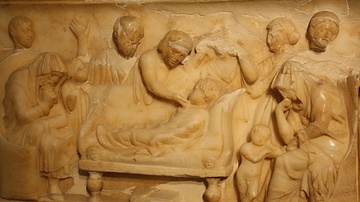
Image
Mourning Scene, Roman Sarcophagus
A scene of mourning from a Roman child's sarcophagus. Marble, 2nd century CE, Roman cemetery at Agrigento, Sicily.
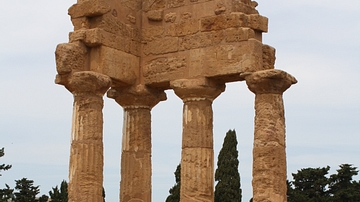
Image
Temple of the Dioscuri, Agrigento
The remains of the Temple of the Dioscuri (Castor & Pollux), Agrigento, Sicily. The Doric temple, built between 480 and 460 BCE, originally had 6 columns on each facade and 13 along the longer sides.
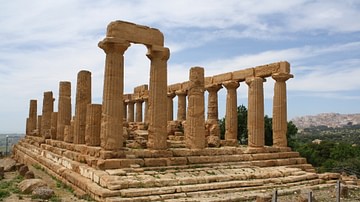
Image
Temple of Juno, Agrigento
The Temple of Juno (Hera) at Agrigento, Sicily. The Doric temple was not in fact dedicated to Juno and acquired the name due to an error by a Latin author. Built between 450 and 440 BCE, the temple once had six columns on each facade and...
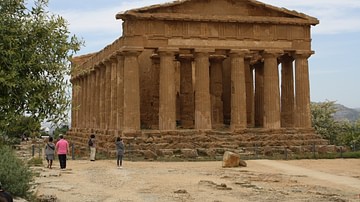
Image
Temple of Concordia, Agrigento
The Temple of Concordia, Agrigento, Sicily. The temple, in Doric style, was constructed between 440 and 430 BCE and had 6 columns on the facade and 13 along the sides. It is one of the best preserved Greek style temples in the Mediterranean...
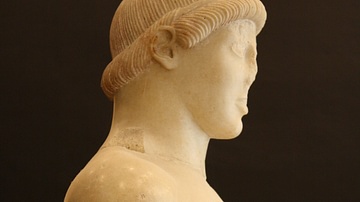
Image
Kouros (The Agrigento Youth)
The kouros known as 'The Agrigento Youth', marble, c. 480 BCE, from Agrigento, Sicily. (Archaeological Museum of Agrigento)
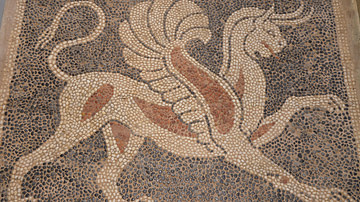
Image
Griffin Pebble Mosaic
Pebble mosaic floor depicting a griffin, from ancient Sikyon (Greece), second half of 4th century BCE.
Archaeological Museum of Sikyon.
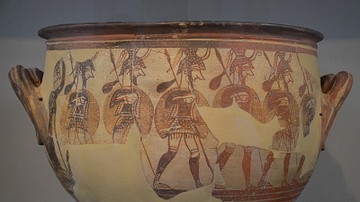
Image
Mycenaean Krater With Warriors
Large Mycenaean krater depicting men in full armour (helmet, cuirass, greaves, shield and spear) as they depart for war, a sack of supplies hanging from their spears. To the side a woman raises her hand in a farewell gesture. From the "House...
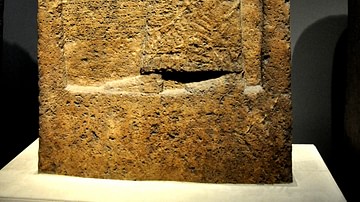
Image
Ashurnasirpal II's Stela from Kurkh
The Assyrian King Ashurnasirpal II worships in front of god symbols. The cuneiform inscription describes his military campaign in the year 879 BCE, when the Assyrian army attacked the lands of the upper Tigris River, near Diyarbakir (modern...
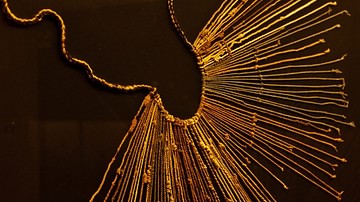
Image
Khipu
Khipu (quipu) or record-knots were used by ancient Andean cultures such as the Inca in order to record and transfer information and records. (Museum of Colchagua, Santa Cruz, Chile)
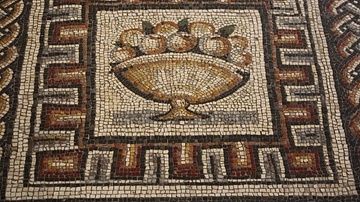
Image
Fruit, Roman Mosaic
A Roman floor mosaic dating to between 350 and 375 CE and depicting fruit. Food was a popular subject in mosaics throughout the Roman period. Provenance: Toragnola, Rome. (Vatican Museums, Rome).